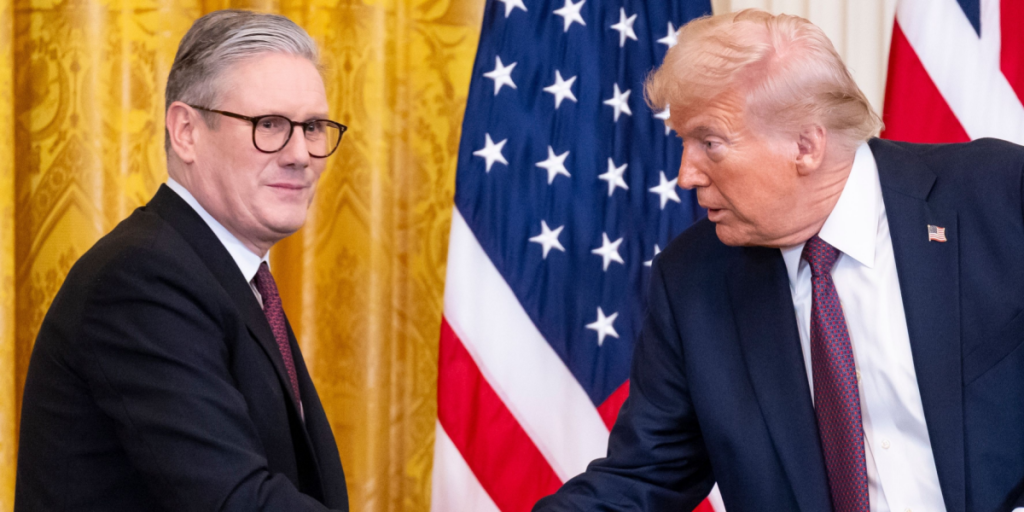Agreement Marks Shift in U.S. Trade Policy Amid Broader Economic Uncertainty
Others are reading now
President Donald Trump is set to announce what he describes as a “long-desired, major trade agreement” between the United States and what is likely the United Kingdom. The announcement is expected Thursday afternoon from the Oval Office and is likely to mark the most significant transatlantic economic development under Trump’s current term.
Details Emerge Ahead of Oval Office Press Conference
According to HotNews, the deal will be revealed during a press briefing at 2:00 p.m. GMT (5:00 p.m. Romania time).
While Trump did not disclose the partner country in his social media teaser, three officials familiar with the matter confirmed to The New York Times that the agreement involves the UK.
The British pound rose against the dollar following the news, highlighting investor optimism. A UK official stated earlier this week that the two nations had made “significant progress,” particularly on reducing tariff quotas for U.S. steel and automobiles entering the British market.
Also read
The deal follows a separate free trade agreement signed by the UK with India, and comes at a time when British officials are also in “active talks” with Washington over Trump’s controversial 100% tax proposal on foreign-produced films—a move that could significantly affect UK’s creative industries.
Strategic Context: A U.S.–China Trade Chill and Market Jitters
The timing of the announcement is strategic. U.S. and Chinese officials are scheduled to meet in Switzerland this weekend for preliminary discussions aimed at resolving escalating tariff disputes.
The Trump administration has drawn heavy criticism from business leaders and central banks for its unpredictable trade measures, which have rattled global markets and slowed economic forecasts.
The International Monetary Fund recently downgraded growth projections for the U.S., China, and other major economies, citing U.S. tariffs as a contributing factor. Trump, however, continues to pursue aggressive tariff-based policies, including a 145% levy on Chinese imports and 25% duties on goods from Canada, Mexico, and the EU.
Analysts warn that the new UK-U.S. deal could strain London’s trade relationships with the European Union and China, especially if it compels the UK to align more closely with U.S. economic demands.
Nonetheless, the agreement provides Trump with a political win at home and may serve as a model for future deals. In recent weeks, he has teased “possible” trade accords with India, South Korea, and Japan—though none have yet been finalized.


